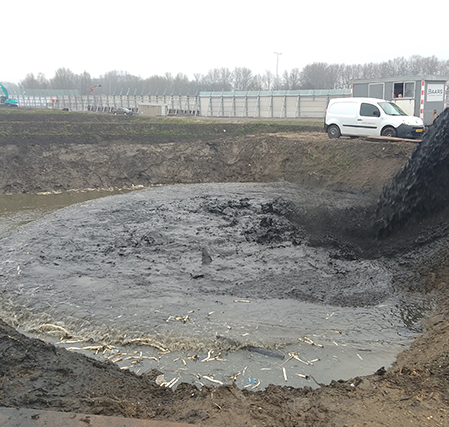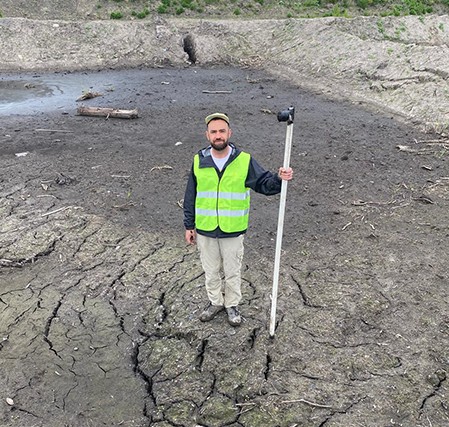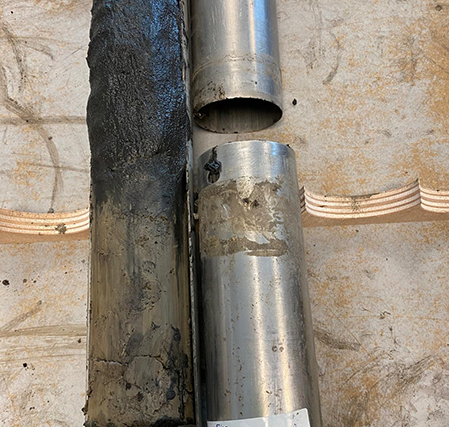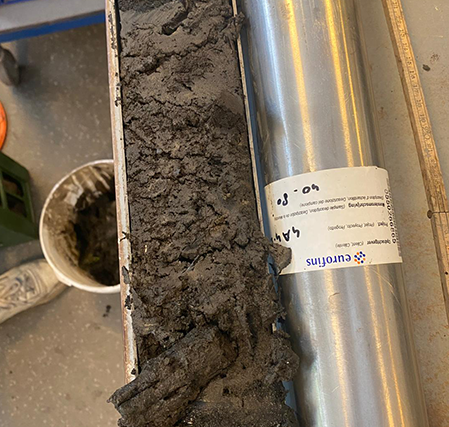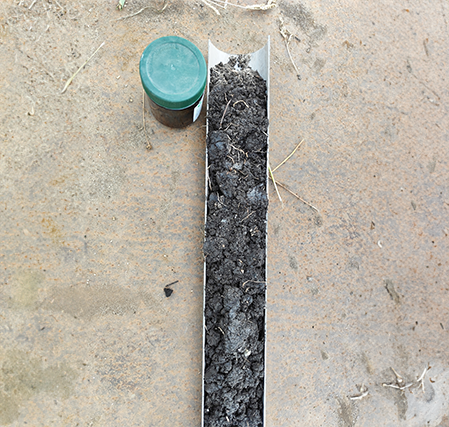Dewatering
Gemeente Rotterdam
Fast dewatering for increased
sediment turnover and storage
capacity in city depot

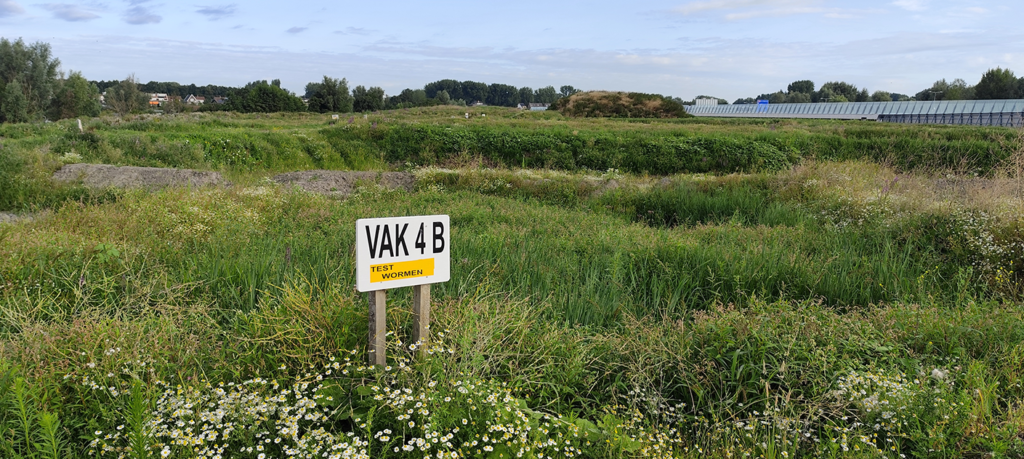
Results |

The project
Accelerating the transformation of dredged sediment into soil to support Gemeente Rotterdam in achieving financial and operational gains in the management of slurry depots
In the heart of Rotterdam, Medeina Engineering collaborates with Gemeente Rotterdam to revolutionize the management of dredged sediments from city canals. Annually, up to 100,000 m² of sediment is extracted and faces a lengthy dewatering process. When removed from these waterways, these slurries are brought to the city’s designated (dredging) depots – baggerdepots. In their muddy state, the water content in these sediment slurries is very high (approx. 80%), making them difficult to handle and reuse. Only when the sediment is dry, it can be harnessed for construction and agricultural purposes. As of today, sediment dewatering at baggerdepots takes up to 1 year or more. These extensive storage periods are expensive in terms of land use, but also limit the city’s capacity to continue cleaning its canals and produce soil in a circular manner. Our initiative seeks to expedite this process, enhancing both financial and operational efficiency in sediment management.
Goals
– To accelerate dewatering process and maximize storage capacity in sediment depot
– To explore potential for sediment reuse in green areas and infrastructure projects
Our services
+ Fast dewatering
+ Sediment volume reduction
+ Soil making
Our tools
Medeina leverages endemic natural assets to increase dewatering speed and accelerate the transition into healthy soils. Based on the specific characteristics of the sediment treated, a combination of aquatic and earthworms and a selection of local pioneering plant species was deployed on-site.
Our process
Medeina designed the pilot, developed an implementation plan and supplied the natural dewatering assets. Gemeente Rotterdam executed the pilot in one of their city depots. Additionally, Medeina together with specialized partners, designed, built and operated a prototype of a worm farm to test the potential to reach the necessary mass of worms at scale. The setup deployed included 3 sediment ponds (area: 15m x 15m x 1m) with 270 tons of freshwater sediment, each with a different treatment: a) aquatic worms + plants, b) aquatic + earthworms, and c) without treatment).
Results
This partnership aimed to showcase a significant reduction in sediment drying times, from the current 1+ year to a substantially shorter period, thereby demonstrating a scalable model for efficient and environmentally responsible sediment management across the globe.
After pilot completion,
- The sediment treated with Medeina’s natural agents (worms + plants / worms) exhibited an increase of 15% of solid contents in 3 months
- The solid content in the untreated sediment remained exactly the same; that is, 0% dewatering in 3 months
- After 3 months, the untreated sediment displayed 25% walkability; whereas the sediment treated with Medeina’s natural agents (worms + plants / worms) allowed for 60% and 80% respectively
- After 4 months, the untreated sediment displayed a resistance of 5 kPa; whereas the sediment treated with Medeina’s natural agents (worms + plants / worms) showed 10 kPa and 15 kPa respectively

